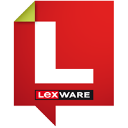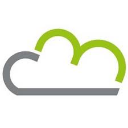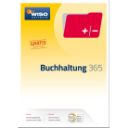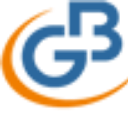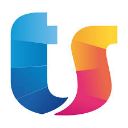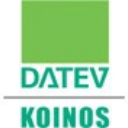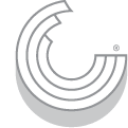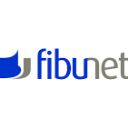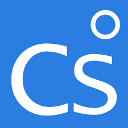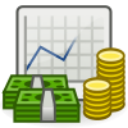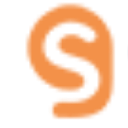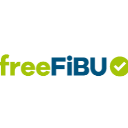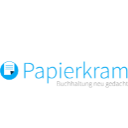Accounting software: purchase guide
What is Accounting Software?
Definition
Accounting software is an IT solution that facilitates bookkeeping and financial management for companies. It can range from simple quotes, invoices and cash management all the way to most general accounting tasks.
How does it work?
Accounting software is designed to automate and internalize all or a part of the services of your accounting department (debit and credit accounting, financial advice, accounting documents) as well as routine administrative tasks (quotes, invoices, voucher orders, supply management, collection of invoices and expense reports, tracking payments, payroll, etc.).
Accounting software focuses on financial aspects of your business, this is why it is different from commercial management software and invoicing software. Moreover, it interprets the financial impact of current operations. And, it is particularly recommended for small companies (startups, small businesses, self-employed, etc.) and medium-sized companies, SME's, that need to keep track of transactions on their bank account or the state of their finances in real-time.
Main Features of an Accounting Software
The features of accounting software play a key role in the commercial development of your business.
Make Simplified Payments via a Paperless Platform
To facilitate exchanges between your partners or customers and your business, some accounting software applications offer the possibility to make payments via an electronic payment platform. The transactions of your accounts are directly integrated into your accounting records to automate bank reconciliation and lettering. These exchanges are completely secure which allows you to make payments without worries.
Commercial Management and Billing
Accounting software integrated into a customer relationship management (CRM) system goes a step further by simplifying commercial management (quotes and automated invoices). In some cases, you can also conduct inventory management.
Whether you are self-employed, an artisan or a commercial business, self-manager, very small business, SME, large business, you will be able to keep track of your accounting to be fully aware of your business's financial status. In line with the work of your accounting department, you can better fill out your balance sheet, income statement and general appendix with much greater ease by regularly updating your accounting software.
Who uses Accounting Software?
Any business starting from one person upwards must use accounting software, even if it is only for estimates & invoices, payments and the follow-up of late payments. Medium-sized companies use accounting software as a financial management tool. Finally, larger companies use accounting software to internalize all of their accounting processes.
Why use Accounting Software in Business?
Benefits of Online Accounting Software
Using accounting software ensures efficient response to needs in general accounting and offers the possibility to analyze your results, cost accounting. Which is much more convenient than Excel, accounting software:
- Saves time by automating common accounting operations
- Allows you to reduce your accounting costs by internalizing services provided by external accountants
- Makes balance sheets dramatically easier
- Helps track third-party accounts
- Ensures compliance with legal obligations, per laws and regulations from the IRS and overall tax code
- Monitor incoming and outgoing payments to and from your bank account as well as fixed assets on a daily basis
- Updates accounting documents whenever they are modified in the general ledger
- May be used in conjunction with the work of a certified public accountant. Some programs give your accountant access to your corporate accounts so that they can take care of your business's accounting by taking into consideration the data integrated into your online software.
- Easier Tax and Sales tax reporting process.
- Helps you make the right decisions by having a realistic view of the state of your business's finances, but also by allowing you to project new investments.
- Keeps you up to date: SaaS accounting software, online, does not depend on your operating system and updates are done automatically.
Cons
- Open Source accounting software does not always comply with the latest financial regulations.
How to Choose?
Criteria
Here are some important features to consider when choosing the right accounting software:
- Good interface ergonomics: It should be easy to understand and very simple to use. Online accounting programs are becoming more and more intuitive. Therefore, it is essential to avoid choosing a commercial management software that only complicates your accounting further.
- Entering accounting entries: This is the main action of your accounting software and this should be done quickly so you do not waste your time on a daily basis with data input. Opt for basic data entry with the possibility to import and export your data so that you can use the figures if you are in a meeting or with your accountant who will be able to do bank reconciliations more easily.
- Third-party account monitoring: It is important to stay up-to-date on transactions between your business, your partners and your employees.
- Sales Tax return if your business is concerned.
- The creation of forecasts: this helps you stay informed about the possibilities of your business and gives you a long-term view of the potential development of your business.
- The ability to export accounting entries and to develop a tax package more easily.
- The dashboard gives a synthetic view of the accounting situation of the business
- Price- how much you pay for an accounting software is personal to your business, depending on the size and how much you are willing to spend. We'd recommend taking a look if the program is a subscription, most likely month to month, or if it's a one time fee, and what kind of options they include for the number of employees you have, if you have to pay extra for additional licenses. Furthermore, looking at the features they include for each plan, free, basic, premium, etc.,
What are the most commonly used accounting software?
Accounting software plays a strategic role in the decision-making process. It takes into account: production cost, ROI and margins, etc. For external partners, it is used to provide a vision of the potential evolution of your business's value: balance sheet, income statement, cash flow. Discover our accounting guides today!
